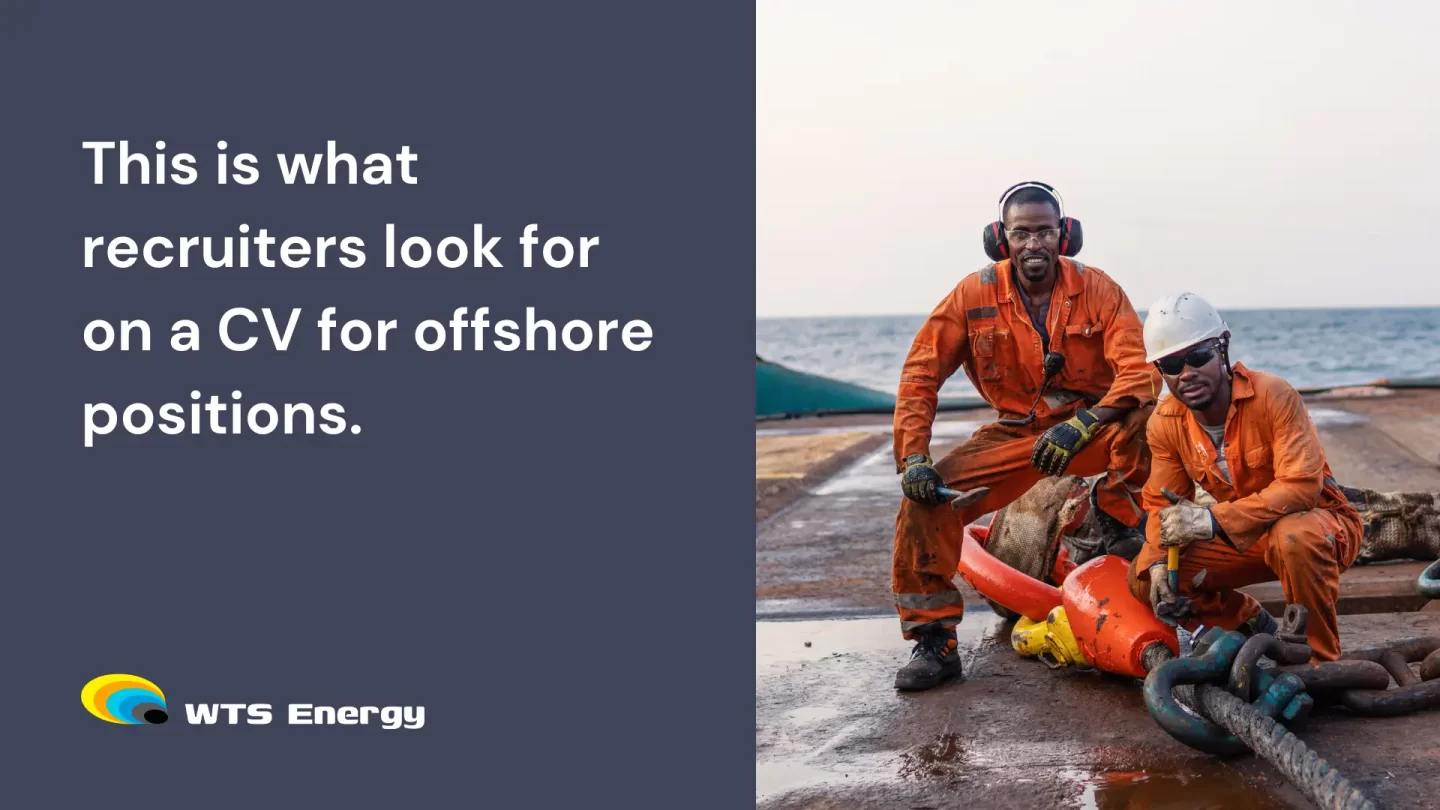Estimated reading time: 5 minutes
Demand for offshore jobs is rising, driven by technology advancements and increased investment in renewable energy sources. This growth is opening doors for aspiring professionals like you. But first, you need an offshore resume that appeals to recruiters. Understanding what recruiters prioritize can significantly enhance your chances.
Therefore, we created this guide to help you capture the essentials, avoid common mistakes, and tailor your resume to stand out in the competitive offshore job market.

Offshore jobs and their unique resume requirements
Offshore jobs range across several sectors, including oil and gas, marine operations, and renewable energy, each requiring different skills and abilities. Oil and gas industry professionals are often stationed on offshore platforms. Technical expertise in drilling and strict safety protocols are essential. Maritime roles normally require in-depth knowledge of navigation and international maritime regulations. Additionally, the renewable energy sector, particularly offshore wind, requires specialized skills in turbine maintenance and an understanding of environmental legislation.
Considering these unique work environment and requirements, writing an offshore resume requires a clear demonstration of specific competencies and experience. Technical skills, safety training and sector-specific certifications are important to highlight on your resume. Additionally, offshore work environments are highly international, so candidates should have effective communication skills and the ability to work in diverse teams.
Key elements to include in a resume for offshore jobs
Before you write your offshore resume, you should consider these elements that align directly with the unique demands of the industry. Here are four essential components to include:
Relevant certifications
highlight the certifications that are specific to the offshore industry such as STCW (Standards of Training, Certification and Watchkeeping), BOSIET (Basic Offshore Safety Induction and Emergency Training), and HUET (Helicopter Underwater Escape Training)
Technical Skills
Detail your technical proficiencies, particularly those that pertain to the specific offshore sector you’re targeting. E.g drilling techniques, equipment maintenance skills for oil and gas industry
Safety training
Offshore work is a high-risk nature, so safety training is essential. You can highlight any courses or workshops you’ve completed that are related to safety compliance
Professional Experience
Outline your previous roles in the offshore industry or related fields, focusing on your responsibilities, the skills you utilized, and your achievements
Structuring your offshore resume for maximum impact
Now it’s time to craft your offshore resume. The key is to present your information in a way that immediately captures the attention of hiring managers who offer scan resumes very quickly. Here’s how you can structure your resume for maximum impact:
Personal details
Start with your full name and contact information clearly at the top to ensure you’re easily reachable.
Headline
Insert a specific headline stating the offshore job title you’re targeting.
Strong summary
Lead with a brief summary that spotlights your key skills and offshore experience, emphasizing your suitability for the role.
Key skills
highlight essential technical and soft skills relevant to offshore work, using bullet points to demonstrate application in past roles.
Relevant qualifications and certifications
list key certifications and qualifications, focusing on those most relevant to the offshore sector.
Key projects and achievements
use bullet points to showcase major accomplishments in your previous jobs, particularly those that relate directly to offshore tasks.
Here are some resume structure tips:
- use bullet points: organize information using bullet points for clarity.
- simplify: keep the format straightforward and professional.
- relevance: ensure all information included is directly related to the offshore job you’re applying for.
Tailoring your offshore resume for different roles
Tailoring your resume for different offshore roles to stand out in the competitive job market. Each offshore role, such as engineering, drilling, or safety positions, demands a unique set of skills and experiences, so a one-size-fits-all resume won’t suffice. Here we provide two examples of how to adjust content based on the specific roles.


Common mistakes to avoid in your offshore resume
Now we are on our way to success. But…be careful of these common mistakes.
- Neglecting Offshore Experience: Highlight relevant offshore projects and roles clearly.
- Vague Language: Use specific, quantifiable descriptions of your achievements.
- Poor Layout: Organize content logically with clear sections and consistent formatting.
- Missing Key Skills/Certifications: Include essential offshore certifications and skills.
- Incorrect Length: Keep your resume concise, ideally two pages.
- Lack of Customization: Tailor your resume for each job application to reflect the job’s specific requirements.
Building a winning offshore resume
Find your next offshore job here
At WTS Energy, we offer specialized support in connecting candidates with leading offshore opportunities.
Now it’ s time to craft your winning offshore resume. Remember to emphasize relevant experience and maintain a clear layout. Tailor your resume to highlight the skills and certifications vital for your targeted offshore role.



